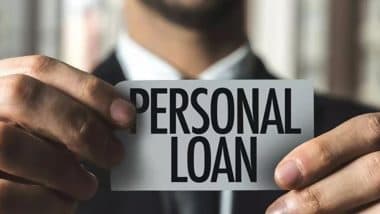Finding the best personal loan deal can be a daunting task. There are over a dozen banks offering personal loans across the country, so before you decide on the ideal bank, here are some tips you should consider.
Personal Loan Eligibility criteria
Many personal loans have strict eligibility requirements. To pre-qualify for a personal loan in some countries, some of the requirements are:
- 21 years old or older (this is different from different banks - some accept applicants 18 years of age or older) but no more than 60-70 years old (depending on the bank).
- A citizen of the country or a foreigner who has lived for more than two years in the same country.
- Different monthly income requirement for employed individuals, foreigners, and for self-employed individuals.
- There is a bank account.
- There are regular salaries or self-employed individuals.
Flat interest rate
The flat interest rate is the type of interest charged to the principal (full loan amount) within the term of the loan. Although the calculation is fairly straightforward, lenders often overlook that in calculating flat rate interest, interest is always charged to the initial amount of your loan. Therefore, no matter how much of your loan has already been paid off, you still need to pay off the full interest calculated at the beginning of your loan. An example of how a flat interest rate works: Suppose you get a $10,000 loan with a flat interest rate of 10% per year. The interest is $1,000 per year until the full loan amount is paid (i.e. the interest rate is $1,000 per year regardless of your loan balance).
Types of Personal Loan
There are two types of personal loans - secured and unsecured loans. The personal loans which are taken by the public are generally unsecured.
Secured Personal Loan
A secured personal loan is a type of loan where borrowers offer their assets, such as a car or a home as a security or collateral for their loan. As such, the loan amount is usually less than an unsecured loan. However, borrowers should be cautious in their financial ability to repay the debt because of the risk that their assets will be repossessed if they fail to repay the loan.
Unsecured Personal Loan
Unsecured personal loans are generally more difficult to obtain. It is because the debt borrowers do not have to offer any form of property as security. Therefore, they need to convince lenders of their financial strength or creditworthiness. This is to ensure that the lenders are able to pay off their debts. Davenport Finance is an expert in this field.
As such, the cost of borrowing for an unsecured loan is higher because lenders have a higher lending risk. Although borrowers will not provide any kind of property on their loan, it does not give them security in case they do not repay their loan in full. Defendants can still bring the case to court so the borrower sells his or her assets to recover any losses.
Be sure to check out Manchester United.













 Quickly
Quickly





















